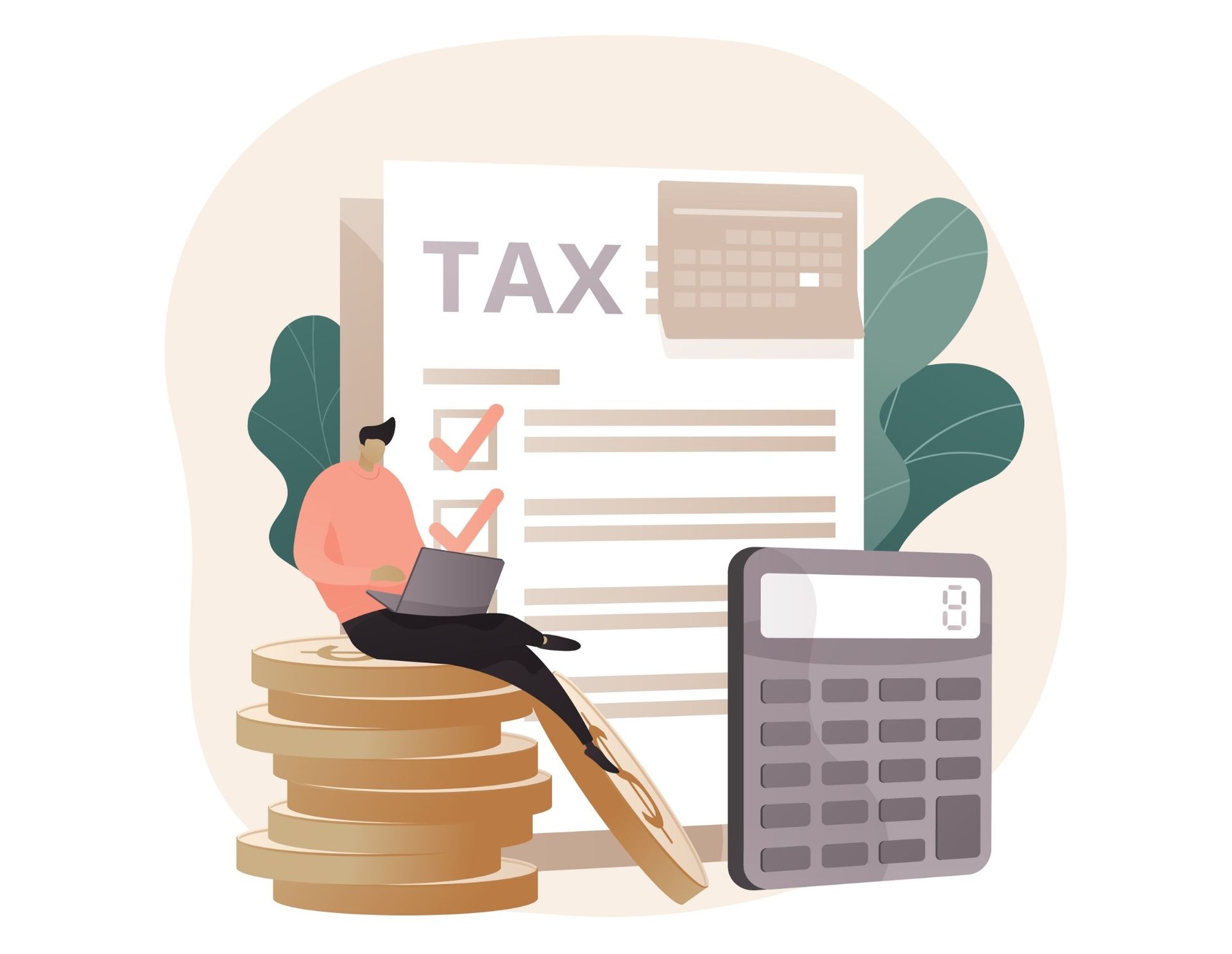News

March 19, 2025
The Administrative Appeals Tribunal (‘AAT’) has held that interest income derived by a self-managed superannuation fund (‘SMSF’) as the sole beneficiary of a unit trust was not non-arm’s length income (‘NALI’), and so this income could still be treated as exempt current pension income. During the 2015, 2016 and 2017 financial years, the unit trust lent money through two related entities to independent third parties who undertook development activities, through a series of loan arrangements. The interest income derived by the unit trust through these loan arrangements was distributed to the SMSF as sole unitholder and was treated as exempt current pension income. Following an audit, the ATO determined that the income was NALI, and therefore should not have been included as exempt current pension income. The ATO then issued amended assessments for the relevant financial years, along with penalties. While the AAT found that the parties were not dealing with each other at arm’s length, it also concluded that the income that the unit trust derived was not more than the amount it might have been expected to derive if the parties had been dealing at arm’s length. Accordingly, the relevant interest income received by the SMSF was not NALI, and so the taxpayer’s objections to the amended tax assessments and penalties were allowed. Please contact our office for more information.

March 19, 2025
On a person’s death, their superannuation benefits can only be paid directly to one or more ‘dependants’ as defined for superannuation purposes, unless they are paid to the deceased’s legal personal representative to be distributed in accordance with the deceased’s Will. Super death benefits can be tax-free to the extent that they are paid (either directly or indirectly) to persons who are ‘dependants’ for tax purposes. However, the meaning of ‘dependant’ differs slightly for superannuation and tax purposes. For superannuation purposes, a ‘dependant’ of the deceased comprises: their spouse (including de facto spouse); their child (of any age); a person in an ‘interdependency relationship’ as defined with the deceased; and a person who was financially dependent on the deceased. However, for tax purposes, a ‘dependant’ (or ‘death benefits dependant’) of the deceased includes their spouse or former spouse (including de facto spouse) and only children under the age of 18. Therefore, super death benefits generally cannot be paid directly to a former spouse, as they are not a dependant for super purposes. Also, while a child of any age is a dependant for super purposes, only children under the age of 18 are dependants for tax purposes. This means that, while a child of any age may receive super death benefits directly, those benefits will generally only be tax-free if the child is under 18. Please contact our office for more information.

March 19, 2025
On a person’s death, their superannuation benefits can only be paid directly to one or more ‘dependants’ as defined for superannuation purposes, unless they are paid to the deceased’s legal personal representative to be distributed in accordance with the deceased’s Will. Super death benefits can be tax-free to the extent that they are paid (either directly or indirectly) to persons who are ‘dependants’ for tax purposes. However, the meaning of ‘dependant’ differs slightly for superannuation and tax purposes. For superannuation purposes, a ‘dependant’ of the deceased comprises: their spouse (including de facto spouse); their child (of any age); a person in an ‘interdependency relationship’ as defined with the deceased; and a person who was financially dependent on the deceased. However, for tax purposes, a ‘dependant’ (or ‘death benefits dependant’) of the deceased includes their spouse or former spouse (including de facto spouse) and only children under the age of 18. Therefore, super death benefits generally cannot be paid directly to a former spouse, as they are not a dependant for super purposes. Also, while a child of any age is a dependant for super purposes, only children under the age of 18 are dependants for tax purposes. This means that, while a child of any age may receive super death benefits directly, those benefits will generally only be tax-free if the child is under 18. Please contact our office for more information.

March 19, 2025
The ATO recently explained how to determine the principal purpose of a car for ‘luxury car tax’ (‘LCT’) purposes (since LCT is not payable on the supply or importation of cars whose principal purpose is the carriage of goods rather than passengers). Broadly, a luxury car (i.e., a car subject to LCT) is a car whose LCT value exceeds the LCT threshold. However, a commercial vehicle that is not designed for the principal purpose of carrying passengers is specifically excluded as a luxury car. The ATO’s new determination sets out various factors to be considered in determining the principal purpose of a car, as well as factors to consider when assessing a car’s modifications. The determination states that commercial vehicles are unlikely to have the body types of station wagons, off-road passenger wagons, passenger sedans, people movers or sports utility vehicles, and the supply of these vehicles for an amount above the LCT threshold without LCT being paid may well attract the ATO’s scrutiny. Please contact our office for more information.

March 19, 2025
The ATO recently explained how to determine the principal purpose of a car for ‘luxury car tax’ (‘LCT’) purposes (since LCT is not payable on the supply or importation of cars whose principal purpose is the carriage of goods rather than passengers). Broadly, a luxury car (i.e., a car subject to LCT) is a car whose LCT value exceeds the LCT threshold. However, a commercial vehicle that is not designed for the principal purpose of carrying passengers is specifically excluded as a luxury car. The ATO’s new determination sets out various factors to be considered in determining the principal purpose of a car, as well as factors to consider when assessing a car’s modifications. The determination states that commercial vehicles are unlikely to have the body types of station wagons, off-road passenger wagons, passenger sedans, people movers or sports utility vehicles, and the supply of these vehicles for an amount above the LCT threshold without LCT being paid may well attract the ATO’s scrutiny. Please contact our office for more information.

March 19, 2025
ThAs from 1 July 2018, individuals with a total superannuation balance of less than $500,000 as at 30 June of the previous income year may be entitled to contribute more than the general concessional contributions cap (i.e., and make additional concessional contributions to utilise any unused cap amounts). For example, an individual who did not make any concessional contributions in the 2019 income year (and whose total superannuation balance was less than $500,000) would have been able to make up to $50,000 of concessional contributions in the 2020 income year. Unused concessional contributions are available on a rolling basis and can be carried forward for up to five years, after which they will expire. The 2024 income year is the first year in which unused caps from all five previous years are potentially available to carry forward. Please contact our office if you require assistance in relation to the above measure.

March 19, 2025
The ATO advises that Pay as you go (‘PAYG’) instalments are calculated using either the instalment amount method or the instalment rate method. It recently provided the following two case studies to illustrate the two methods: Case study 1: Kelly the DJ Kelly is a DJ, working at festivals from November to January. She chooses to use the instalment rate method, as it suits her seasonal business income. Using this method means she needs to work out her business income each period. It helps her manage cash flow because the amounts she pays will vary in line with her income. When Kelly receives her BAS or instalment notice, she calculates the instalment based on her income for that period, multiplied by the rate provided. Case study 2: David the plumber David is a plumber with regular monthly business income, so he chooses the instalment amount method. He won’t need to work out his business income each period to use this method. David pays the instalment shown on his BAS. The amount is calculated from information in his last tax return. Please contact our office for more information.

March 19, 2025
Taxpayers who have received a government support grant or payment recently to help their business recover from COVID-19 or a natural disaster should check if they need to include the payment in their assessable income. Grants are generally treated as assessable income, and taxpayers may be able to claim deductions if they use these payments to: purchase replacement trading stock or new assets; repair their business premises and fit out; or pay for other business expenses. However, some grants are declared non-assessable, non-exempt ('NANE') income. This means taxpayers don't need to include them in their tax return if they meet certain eligibility requirements. NANE grants include but are not limited to: COVID-19 business support payments; natural disaster grants; and water infrastructure payments. Taxpayers can only claim deductions for expenses associated with NANE grants if they relate directly to earning their assessable income, including wages, dividends, interest and rent. Taxpayers cannot claim expenses related to obtaining the grant, such as accountant's fees. Please contact our office for more information.

March 19, 2025
The Administrative Appeals Tribunal (‘AAT’) recently held that a claim for a deduction for personal super contributions should not be allowed, as the relevant 'notice requirements' were not satisfied. In order to claim a deduction for personal super contributions, an individual must both notify the super fund of their intention to claim a deduction, and receive an acknowledgment from the fund that it received the notice During the 2021 income year, the taxpayer made a number of personal superannuation contributions to his super fund totalling $6,550, with the last of those contributions made on 30 June 2021. Sometime before 9 June 2021, the taxpayer submitted to his fund a notice advising the fund that he intended to claim a personal contribution deduction for $6,550 for the 2021 income year. However, on 9 June 2021, the fund advised that it was unable to accept the notice because the fund's records indicated that the amount of contributions listed in the notice was different to the amount of contributions received. This was because the fund received the notice before the taxpayer made his final contribution of $550 on 30 June 2021. Sometime between 9 June 2021 and 16 July 2021 the taxpayer resubmitted a notice to the fund via post that he intended to claim a deduction for the amended amount of $6,000 (although the fund subsequently advised that it had not received this notice). On 14 July 2021, the taxpayer lodged his 2021 income tax return, claiming a deduction for $6,000 of personal contributions. On 22 August 2021, the ATO notified the taxpayer that his claim for a personal contribution deduction had been disallowed, on the basis that the fund had not reported an acknowledged notice that matched his claimed deduction. The AAT held that, when the taxpayer completed the first notice, he had not made personal contributions of $6,550 (as referred to in the notice), but rather had made contributions of $6,000. Therefore, the first notice could not be valid as it was not in respect of the contributions that the taxpayer had made. The AAT also noted that the fund did not provide an acknowledgment of the taxpayer's second notice, as it had not received it. Please contact our office for more information.

March 19, 2025
The ATO will acquire visa data from the Department of Home Affairs for the 2024 to 2026 income years, including the following: address history and contact history for visa applicants, sponsors, and migration agents; active visas meeting the relevant criteria, and all visa grants; visa grant status by point in time; migration agents who assisted the processing of the visa; all international travel movements undertaken by visa holders; and sponsor details, and visa subclass name. The ATO estimates that records relating to approximately nine million individuals will be obtained each financial year. The objectives of this program are to (among other things) help ensure that individuals and businesses are fulfilling their tax and super reporting obligations, and identify potentially new or emergent approaches to fraud and those entities controlling or exploiting the visa framework. Please contact our office for more information.
